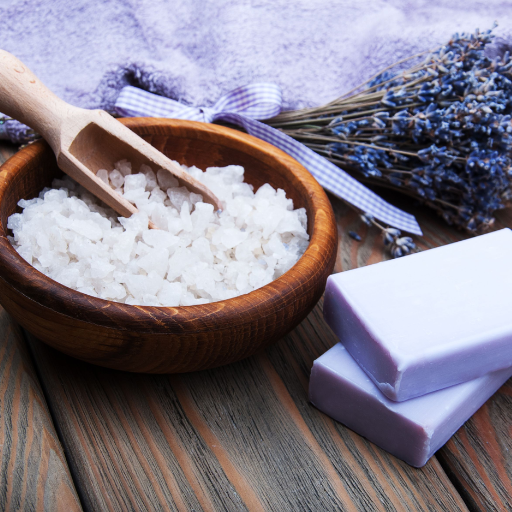Magnesium sulfate, the primary component of Epsom salt, is a resourceful and natural mineral with varied advantages for garden health and plant growth. Many gardeners do not know magnesium is vital in plant development, especially in manufacturing chlorophyll, which is necessary for photosynthesis. This article will enlighten readers on the best kinds of epsom salts for planning their gardens, how they improve nutrient absorption, and different techniques to apply to healthy plants. It doesn’t matter whether you have been gardening all your life or are just beginning; knowing why Epsom salt is valuable will enable you to create a thriving garden.
What is Epsom Salt, and How Does it Benefit Plants?
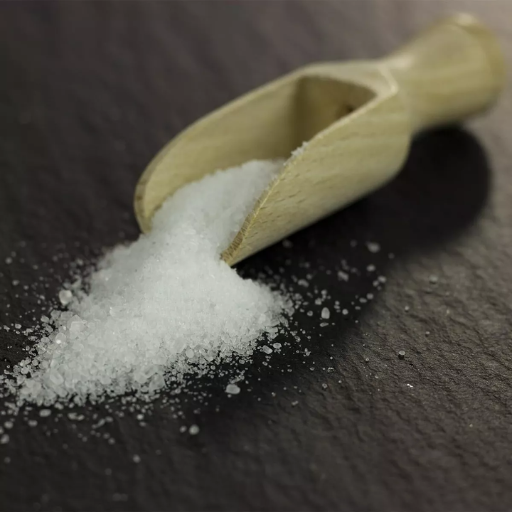
What are the nutrients that Epsom Salt provides?
Magnesium and sulfur, the most essential plant nutrition ingredients, are abundant in Epsom salt. Magnesium assists with chlorophyll formation, making photosynthesis effective by providing enough energy to the leaves, hence the green color. Moreover, magnesium is involved in processes that activate several enzymes within a plant. Sulfur is also crucial as it takes part in amino acids and protein synthesis needed for optimum growth of plants. Together, these two elements improve the uptake of nutrients, promote a robust root system, and lead to the overall healthy condition of a plant.
How does magnesium sulfate work in the garden?
In gardens, Magnesium Sulphate (commonly known as Epsom Salt) enhances plant nutrient uptake, improves general health, and enables certain physiological activities to occur. It dissolves well when there is moisture, so magnesium and sulfur can be easily absorbed into roots when applied to the soil.
Key Mechanisms:
- Chlorophyll Production: Chlorophyll needs magnesium because this mineral helps with photosynthesis, which allows plants to use sunlight for energy and, thus, better growth.
- Nutrient Absorption: Magnesium activates enzymes related to the absorption of nutrients from the soil, leading to efficient assimilation of vital elements such as nitrogen phosphorous and potassium, among others.
- Root Development: Sulphur stimulates the production of amino acids and proteins, which are significant in root development; they form more muscular root systems responsible for stabilizing plants and drawing water from soils.
- pH Balance: Magnesium Sulphate can also be used to regulate soil pH, resulting in the most suitable environment for nutrient availability, especially in soils that are slightly acidic or neutral, where nutrient uptake may sometimes be impaired.
Technical Parameters:
- Solubility: At room temperature, one liter of water contains about 35 grams of Epsom salt, which dissolves fast because of its high solubility. This ensures a good supply of the required quantities of magnesium and sulfur to the plant.
- Magnesium Content: Each kilo of Epsom salt usually contains about 9.8% magnesium by weight. This amount is beneficial when more magnesium is needed to support any plant suffering from deficiency.
- Application Rate: Generally, one or two tablespoons of Epsom Salt per foot of the plants can boost their growth and development. However, this may vary depending on different types of plants and soil characteristics.
In conclusion, magnesium sulfate serves as both a magnesium and sulfur supplier; hence, gardeners use it to improve their plants’ health status, make them grow better, and allow them to absorb nutrients effectively.
Why is magnesium essential for plant growth?
Magnesium is essential for plant growth because it forms part of chlorophyll, giving leaves a green color. Energy cannot be produced without enough magnesium, thus making photosynthesis impossible, resulting in stunted growth and yellowing leaves called chlorosis. It also helps in protein synthesis and enhances the uptake of other major nutrients, leading to balanced nutrition. My best sources have shown that besides boosting healthy plant growth, such as aiding cellular functions and stress responses all over the body, magnesium can keep a plant alive well from my study’s top results.
How to Use Epsom Salt for Plants Effectively?
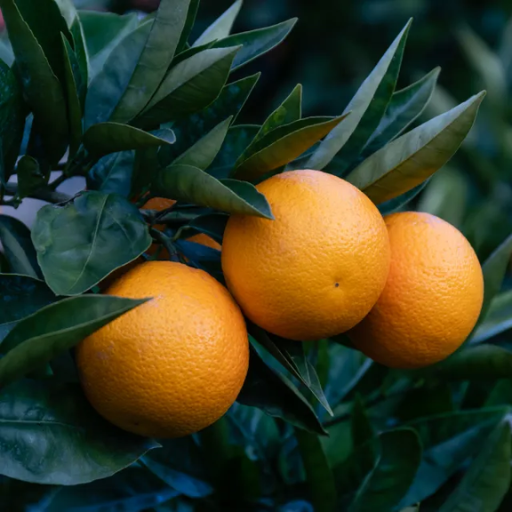
How much Epsom Salt should I apply to the soil in my garden?
According to information from some top sources, it is advised that a general guide when mixing Epsom salt into my garden soil is about 1-2 tbsp for every foot of the plant height. However, this is not set in stone and can be adjusted based on other factors, such as nutrient requirements and present soil conditions. For example, if I am starting a new garden, I may consider mixing a gallon of water with one cup of Epsom salts and applying it to the soil before planting. On established plants, I sprinkle Epsom salt around their base, then water them to ensure the nutrients are taken up effectively. This is important since visible signs reveal whether I need more or less Epsom salt.
Can potted plants take Epsom Salt?
Definitely! I can use Epsom salt in my potted plants. The best advice from leading sources suggests using approximately one tablespoon of Epsom salt per gallon of water when watering potted plants (E-Mag sulfur). This will enable them to get enough magnesium without exaggerating its application. Besides that, monthly application of Epson salts has been known to improve overall plant health, especially for flowering/fruiting varieties, by enhancing blooming and fruit production (Hofrichter). It is a simple technique but quite effective at increasing the nutrient content in my pots.
What’s the best way to feed my plants with Epsom Salt?
Based on specific situations, either as directed onto leaves or directly soil administration would be the most appropriate way for me to apply Epson salt to my plants. For foliar spraying purposes, I mix one tablespoonful of Epson salts in 1 gallon of water and spray early morning or late evening times so that leaves do not get damaged due to sunburns during the hottest part of the day (Sri Gayathri et al.). In soil application, 1 to 2 tbsp of Epson salts are commonly sprinkled around the base of each plant and then well watered in. This ensures that the roots effectively absorb magnesium. Further, I apply Epsom salt, especially during the growing season and when plants are flowering or fruiting, to increase their health and yield per plant (Hofrichter).
Which Plants Benefit Most from Epsom Salt?
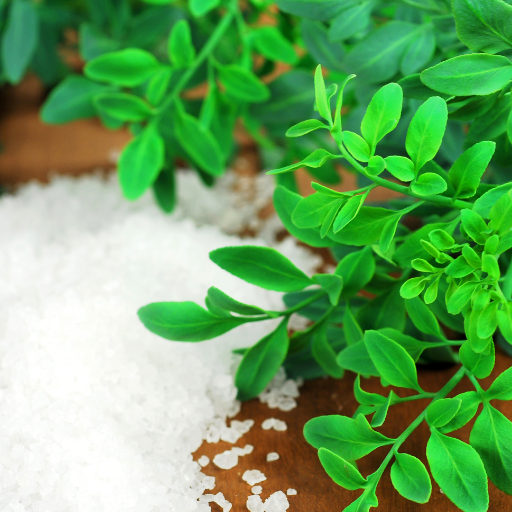
Can tomato plants be successfully grown using Epsom Salt?
Yes, tomato plants can indeed be successfully grown using Epsom salt! My findings from various sources indicate that tomatoes require magnesium and sulfur, essential for healthy growth and fruit production. Consequently, I apply Epsom salt to prevent blossom end rot and improve the taste of my tomatoes. Usually, I do this during the growing season when my crops need it, through foliar spray or mixing it into the soil to ensure these crucial nutrients get to my plants at the right time.
Which crops suffer from a lack of magnesium?
Some crops susceptible to magnesium deficiency include peppers, potatoes, and leafy greens like spinach and kale. My top sources have shown me that magnesium is essential in photosynthesis and general plant well-being. Symptoms of lack often manifest in interveinal chlorosis, where veins remain green, but spaces between them turn yellow.
- Peppers: A magnesium shortage in peppers may lead to poor fruit set and increased disease susceptibility. For instance, pH levels should be monitored since a pH above 6.5 can interfere with magnesium uptake.
- Potatoes: Low magnesium levels in potatoes, for instance, result in leaf curling and reduced yields. For better magnesium absorption, aim for soil pH between 5.5 and 6.0 on average.
- Spinach and Kale: These leafy vegetables are essential indicators of a lack or excess of magnesium in the soil. When leaves are yellowing, I would examine the nutrient balance on my ground before settling on Epsom salts as an alternative to treat this insufficiency.
This will help me understand what these plants need regarding nutrient requirements for healthy growth.
How does Epsom Salt help prevent blossom end rot in tomatoes?
Epson Salt helps to reduce blossom end rot by providing an essential source of Magnesium (Mg) and Sulfur (S), which also play a vital role in calcium uptake. Usually, blossom end rot is caused by calcium deficiency. Therefore, to ensure that my tomato plants have enough magnesium, I always use Epsom salt to help them take up more of this nutrient from the earth. I usually dissolve about one tablespoon of Epsom salt in a gallon of water for foliar spray or soil drenching every few weeks during the growing season. This makes my tomato plants healthier overall and increases the growth of bigger fruits, reducing the chances of blossom end rot occurring.
Can Epsom Salt Help with Soil pH and Nutrient Uptake?
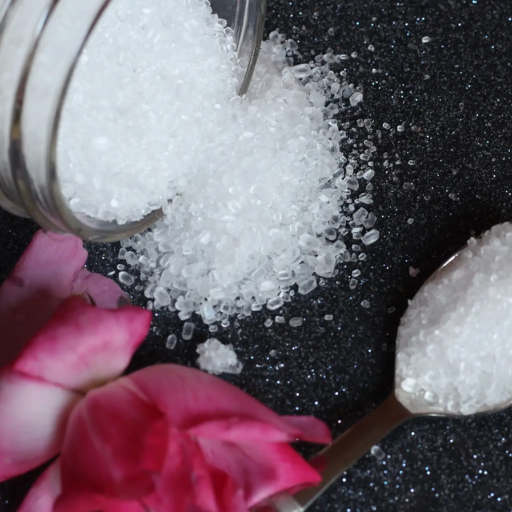
How does Epsom salt affect the quality of the soil?
There are many different ways in which Epsom salt can positively affect the quality of soil. Firstly, it supplies magnesium, essential for photosynthesis, and helps activate certain plant enzymes. Enhancing magnesium levels in the soil would improve the well-being of my plants as a whole and increase growth levels. Also, it helps in improving soil structure, thus making it more aerated and facilitating better water retention and drainage. Besides, Epsom salt is known to help in nutrient uptake since its magnesium component can aid in absorbing other vital nutrients like nitrogen and phosphorus. By continuously adding Epsom salt into my routine activities that involve managing soils, I will have a suitable environment for growing especially when considering plant health.
What is an ideal pH level for adding Epsom Salt to the soil?
The ideal pH level for using Epsom salt is usually between 6.0 and 7.0. Most plants best absorb magnesium and other nutrients within this slightly acidic to neutral pH range. I use this range so that when my garden’s pH falls within this range, any additional application of Epsom salts mainly increases nutrient uptake by these elements, hence supporting overall plant health and growth. Its pH can determine whether or not Epsom salts can function adequately, so I always test for acidity before using them on my crops.
Can Epsom Salt improve nutrient uptake in plants?
This statement holds: Yes! It dramatically improves nutrient uptake in plants. As mentioned earlier, the magnesium in Epsom salt is crucial during photosynthesis and facilitates these organisms’ absorption of significant nutrients such as nitrogen and phosphorous. My garden greatly benefits from adding Epsom salts because its action on this vegetable’s roots enables their better utilization, thus leading to healthy growth with improved yields. Simultaneously, by enhancing soil structure and aeration, Epsom salt helps create a more efficient rooting environment, ensuring better nutrient uptake.
Are There Any Risks to Using Epsom Salt in the Garden?
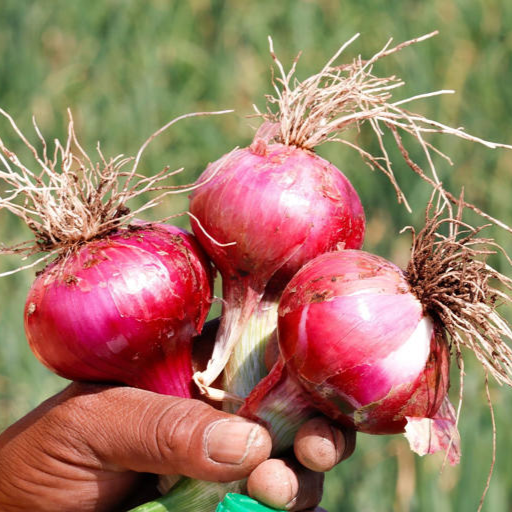
What will occur if I use too much Epsom Salt?
Using excess Epsom salt in my garden may lead to unstable soil nutrient concentration. While magnesium is helpful for healthy plants, excessive amounts can inhibit other vital nutrients, such as calcium and potassium, from being absorbed. This may result in stunted plant growth and symptoms like leaf curling or yellowing. Moreover, high levels of Epsom salt make soil saline, affecting water uptake in my plants. Usually, I apply moderate Epsom salt to achieve optimum growth and watch out for any sign of nutrient deficiency among my plants.
Can Epsom Salt harm plants or soil health?
Though it has advantages in my garden, I also know that the wrong application can cause damage. Too much of it could lead to nutritional imbalances where an overabundance of magnesium hampers calcium and potassium uptake, critical to a vigorous plant. On top of this, excessive quantities create higher salinity levels within the ground, leading to poor water entry into the tissues. To avoid these issues, I always follow recommended application rates and closely watch my plants for signs of stress. Generally speaking, reasonable usage enhances crop health, while overuse has various adverse consequences, including soil health decline.
What indicates Epsom Salt deficiency?
I can tell that my crops do not have enough Epsom salt just by observing some visual qualities they display. A common symptom is yellowing leaves, mainly between veins, which indicates a lack of magnesium (Leone 14). In addition, a slow growth rate and poor fruit formation may also mean low-level content (Leone 38). The problem might be seen through curling up or browning around the edges (Leone 12). As a gardener who wants his crops to be good again, if there is an indication like that, I usually purchase Epsom salt to bring back the equilibrium that might have been disturbed by some factors.
Reference sources
Frequently Asked Questions (FAQs)
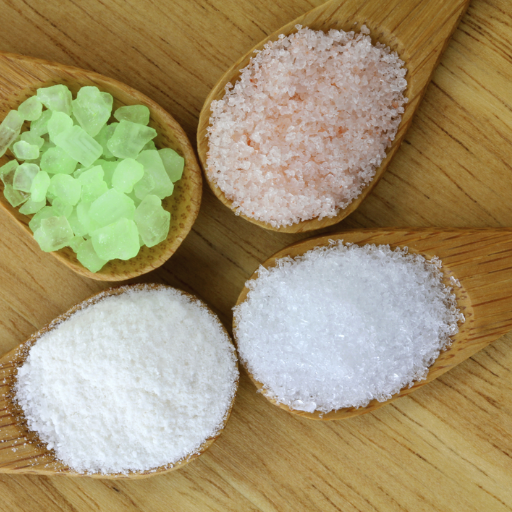
Q: What is epsom salt for gardening, and how can it benefit my plants?
A: Epsom salt for gardening is a natural mineral compound containing magnesium and sulfur, which are beneficial for plant growth. It can help enhance nutrient absorption, improve seed germination, and promote overall plant health, making it an excellent addition to your fertilizer regimen.
Q: How much epsom salt should I use per gallon of water for my garden plants?
A: A standard recommendation is to add two tablespoons of epsom salt per gallon of water. This mixture can water your plants with essential magnesium and sulfur.
Q: Can epsom salt be harmful to plants if used in excess?
A: While epsom salt can benefit plants, too much can do more harm than good. It’s essential to test your soil and avoid overusing any fertilizers, including epsom salt, to prevent nutrient imbalances that could negatively affect your plants.
Q: Is ultra epsom different from regular epsom salt?
A: Ultra epsom is a marketing term typically referring to a more refined version of epsom salt, which may dissolve more easily in water. Both types contain magnesium sulfate, but you should choose the one that best suits your gardening needs.
Q: Can I use epsom salt as a bath salt in my garden?
A: While epsom salt used in baths can be the same compound, it’s best to use food-grade epsom salt for gardening to ensure it is free from additives or fragrances that might harm your plants.
Q: How does epsom salt help with pest control in my vegetable garden?
A: Epsom salt can help make plants less attractive to pests by strengthening their health. Healthier plants are better equipped to resist pests, and using epsom salt can also help improve their growth, making them more vigorous and robust.
Q: When is the best time to apply epsom salt on plants?
A: The best time to apply epsom salt on plants is during the growing season, ideally during early spring when plants start growing actively. You can dissolve it in water and use it every 4-6 weeks for optimal results.
Q: Can epsom salt be used in organic gardening?
A: Yes, epsom salt is a natural salt and can be used in organic gardening. It provides magnesium and sulfur without synthetic additives, making it suitable for maintaining organic standards.
Q: How can I use epsom salt to improve the growth of my pepper plants?
A: To improve the growth of your pepper plants, mix two tablespoons of epsom salt with a gallon of water and apply it to the soil or use it as a foliar spray. The magnesium in epsom salt will help enhance flowering and fruiting, promoting healthier plants.



